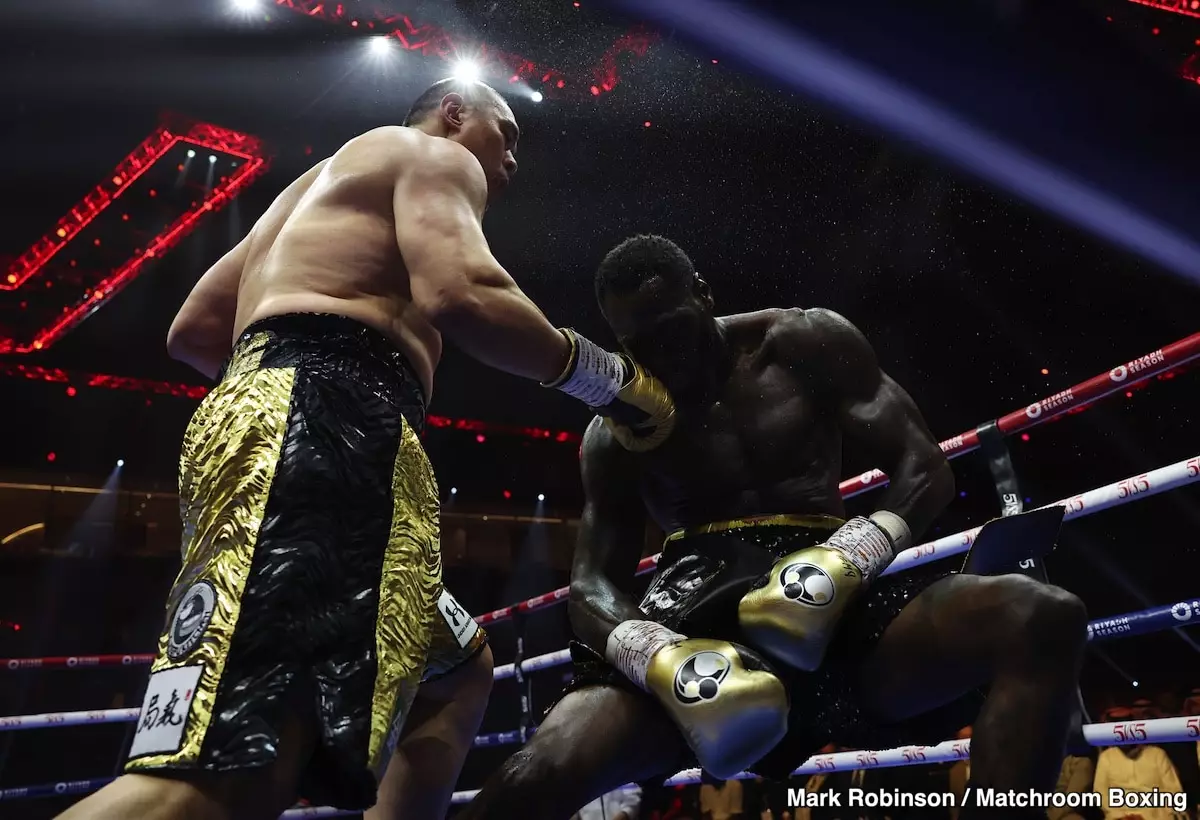Deontay Wilder, once the indomitable force in the heavyweight boxing division, now finds himself teetering on the precipice of obscurity. With an impressive record of 43 wins, 4 losses, and 1 draw, Wilder was revered for his ferocious knockout power, but in recent years, the narrative around him has shifted dramatically. Following two consecutive losses and a solitary victory in five years, the former WBC heavyweight champion faces an uncertain future that many, including his trainer Malik Scott, assert is on the line in his upcoming 2025 fight.
This current phase of Wilder’s career raises critical questions: What has led to this decline? Is it the accumulation of wealth that has diluted his fighting spirit, or is it the introduction of a new boxing style that has proved incompatible with his innate talents? The juxtaposition of Wilder’s past tenacity and present struggles invites a deeper analysis of the factors influencing this fallen champion’s trajectory.
One predominant theory attributing to Wilder’s diminished performances is the significant change in his fighting style brought on by the switch from long-time coach Mark Breland to Malik Scott. Since this change, Wilder’s record has plummeted to 1-3 under Scott’s stewardship, leading fans and experts alike to speculate whether this shift has been beneficial or detrimental to the fighter. Traditionally known for his knockout punching power, Wilder has attempted to adopt a more technical, boxing-centric approach at the insistence of his trainer. However, many critics argue that this transition has come too late in his career, stifling the natural instincts that first brought him success.
Most notably, Wilder’s performance against Joseph Parker exemplifies these concerns. Instead of leveraging his explosive power to engage opponents, Wilder seemed hesitant, adopting a cautious stance that ultimately resulted in a wide decision loss to an opponent viewed as well past his prime. The commitment to a boxing style—one that contrasts sharply with the slugging prowess Wilder exhibited earlier in his career—has left many questioning not just his method, but his identity as a fighter.
Another angle worth examining in Wilder’s decline involves the challenges posed by sudden wealth and fame. With an estimated net worth of $30 million, Wilder’s financial success has instilled a sense of comfort that some argue has tempered his ferocity. It’s not uncommon for athletes to lose their initial hunger under such circumstances; sleight of hand can easily lead to a loss of passion when one’s basic needs are addressed. Scott himself hints at this dilemma, noting that Wilder might not possess the same predatory drive that characterized his earlier years in the ring.
But is it solely the wealth to blame? While it certainly has a profound impact, the issue may also arise from a deeper psychological struggle. After years of proving himself, is Wilder grappling with the weight of his legacy? The pressure of being a champion, the oft-misaligned expectations from fans and trainers—these factors create a complex backdrop against which he now fights.
The Road Ahead
As Wilder prepares for what could be a career-defining bout in 2025, the stakes have never been higher. Malik Scott asserts that Wilder’s future hinges on this fight. Will he reclaim the assertive intensity that made him a heavyweight champion or continue to wade through the rocky waters of self-doubt? The combination of an altered training regimen, the burden of wealth, and a shifting identity as a fighter creates a unique narrative arc for Wilder, one that resonates deeply within the annals of sports history.
Fans and commentators worldwide will be watching closely, not just to see if Wilder can turn back the clock but also to witness whether he can reconcile his past with his uncertain future. Only time will tell if Deontay Wilder can rise from the shadows of defeat or if he’ll remain a cautionary tale of how one’s light can flicker out in the unforgiving world of boxing.

